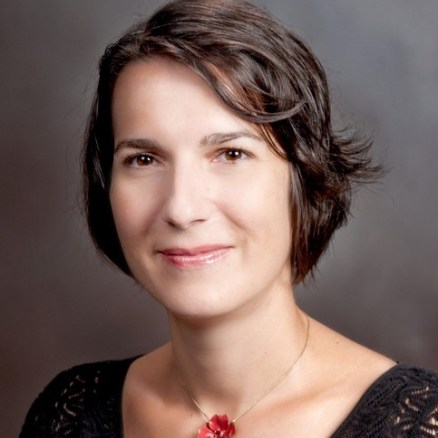Sustainable Tourism in a Young Democracy
By: Lindsay Key
October 1, 2018

Dr. Anamaria Bukvic is a Research Assistant Professor in the Department of Geography at Virginia Tech and a CLiGS Global Faculty member. As the lead instructor for this summer’s International Field Experience (IFE) to Croatia, Dr. Bukvic sat for an interview with Lindsay Key, who accompanied the group as a Master of Natural Resources (MNR) alumna.
Lindsay Key (LK): Dr. Bukvic, how did you begin teaching NR 5114 Global Issues in Natural Resources for the Online MNR program?
Anamaria Bukvic (AB): I met CLiGS Director and Senior Fellow, Dr. Michael Mortimer when I joined the Virginia Tech’s College of Natural Resources and Environment and the Department of Geography as a research faculty in 2016. Once he learned that I am originally from Croatia, he approached me with the possibility of teaching the course and leading the IFE to Croatia. I have been living in the United States for over 20 years and thought this might be an excellent opportunity to go back to my native country, connect with some of the professionals and stakeholders working on environmental issues, and build a collaborative platform that will benefit our students and the international programs.
LK: What do you enjoy most about teaching Global Issues?
AB: My favorite parts of the course are interactions with students during the IFE trip. This face-to-face component, and the shared experiences obtained through teamwork, programmatic activities, and cultural travel in a foreign country, tend to build a sense of camaraderie and bonding that would be difficult to achieve only by virtual communication.
The students usually come from all walks of life, and most already have a full-time job, families, and extensive professional experiences. Thus, sharing our life stories and learning more about their motivations to complete the MNR degree is always enriching and fulfilling. In addition, all students are highly interested in the environmental issues and cognizant of contemporary emerging challenges related to natural resource management, therefore making our conversations more productive and interesting.
LK: What is your connection to Croatia?
AB: I was born in Zagreb, Croatia, and spent the first two decades of my life there. After the Croatian Homeland War (1991-1995), I left the country to pursue higher education in the United States, where I completed two masters degrees, my doctoral degree and continued working here as a university professor. I enjoy coming back to Croatia and seeing my family and friends when circumstances allow.
LK: What do you hope to provide students during their visit to your home country, and what do you hope they take away from the experience?
AB: My hope is that students had a good experience, with both cultural exposure and experiential learning. During the Croatia IFE, they had an opportunity to interact with a number of local partners and learn from them about the contextual circumstances that drive many environmental problems in different regions of Croatia, as well as about the unique relationships between different interest sectors. Learning directly from the local stakeholders is always an invaluable experience, especially when reinforced by the field visits and additional case study analysis.
I would expect that students left with a better understanding of complexities and uncertainties related to the management of natural resources in Croatia, especially considering the country went through a devastating war and transition from a communist regime to a young democracy and eventual membership in the European Union in 2013.
LK: From your perspective, what are the primary natural resource management challenges Croatia faces?
AB: It seems to me that the natural resources challenges in Croatia are very much intertwined with the other local and national issues and it is difficult to separate them from the socioeconomic, geopolitical, and historical context. Croatia is a country that is still rich in relatively pristine natural resources, and one concern is that the economic and development pressures may result in their unsustainable exploitation.
One such example can be seen from a rapid growth of tourism in coastal areas where many historic localities have inadequate infrastructure and sensitive natural and built features to accommodate an increasing number of visitors. This is especially evident in some of the more popular tourist destinations like the city of Dubrovnik, Plitvice Lakes National Park, which is recognized as a UNESCO World Heritage site, and similar destinations.
At the same time, 25 percent of Croatian GDP comes from the tourism, most of which is limited to the summer tourist season. There are some ongoing efforts to extend the tourist season and provide more attractions and amenities in other non-coastal parts of Croatia and relieve some environmental pressure from the tourism. Additionally, Croatia has access to EU funds that support environmental protection and sustainable development.
LK: Thank you for taking the time to speak with me, Dr. Bukvic.
AB: My pleasure, Lindsay!
---

Anamaria Bukvic completed her Bachelor’s degree from the University of Zagreb, Croatia, and later received a Master of Science and Master of Community Planning from the University of Cincinnati. Her Ph.D. is in Planning, Governance, and Globalization, which she obtained from Virginia Tech. She also gained professional experience as a researcher in environmental health and served as an environmental consultant and program coordinator on various projects. Bukvic’s academic and professional multidisciplinary experience drives her dedication to use a holistic and integrated approach in tackling complex contemporary issues in environmental planning through research, interpretation, and outreach.
MNR alumna Lindsay Key is passionate about helping scientists translate their discoveries into news that the general public can understand and use. She’s particularly knowledgeable about the life sciences and has written extensively about the environment, wildlife, and human health. In addition to the MNR, she has degrees in creative writing (focus: poetry), English, and Communication Studies.


